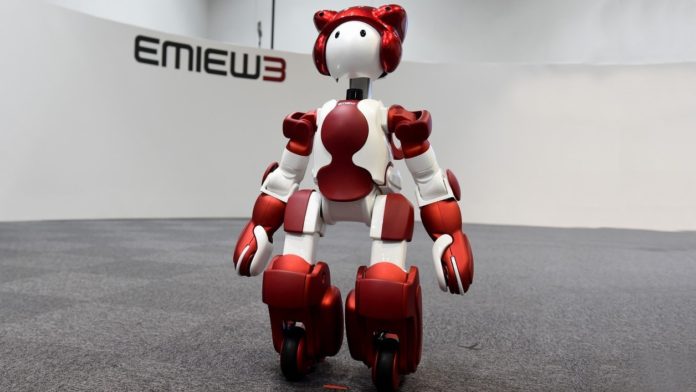Unlike American tech giants Amazon and Google, Japanese companies such as Sony and Sharp are developing robots and holograms as platforms for smart homes and the Internet of Things (IoT). Some of the recently released robots include the Xperia Assistant, Bocco, ad EMIEW3, which have all become household names in Japan. Startups in Japan are also developing their own robots and hologram concepts.
A Robot Companion Instead of an Assistant
All the developed and developing systems have their own distinctions. But all intend to become the central control for smart homes and IoT devices. Japan’s approach has a more human face. Yukai Engineering designer Kosuke Tatsumi describes this as “Japanese companies and Japanese consumers preferring that such a platform should not just be an object but a companion.”
Hitachi is refining this approach with the EMIEW3, a human symbiotic service robot that’s exploring customer needs and possible solutions through proof-of-value tests. The EMIEW3 does this through human communication that lets it receive instructions. The robot’s connection to a robotics IT platform lets it interact with other IoT-based systems to execute these instructions.
Android creator, Dr. Hiroshi Ishiguro, says that human interaction is essential to the development of any AI. This is evident in how American companies are embedding AI in speakers as well. Japan’s approach, however, focuses on form. Ishiguro believes that Amazon Echo doesn’t provide a human interaction that is natural enough. “The human brain is constructed to recognize and interact with humans,” he says. It makes sense for companies to develop the AI mind and a body to house the mind. Unlike American companies, Japan intends to develop a companion. Japan’s robots are also more kawaii or cute, making it easier for users to relate to and even forgive the device.
For a better look at what Japan’s companies are up to, check out Sony’s Xperia Agent concept robot. This device is voice controlled so it can power up and direct your TV and even Skype.


















